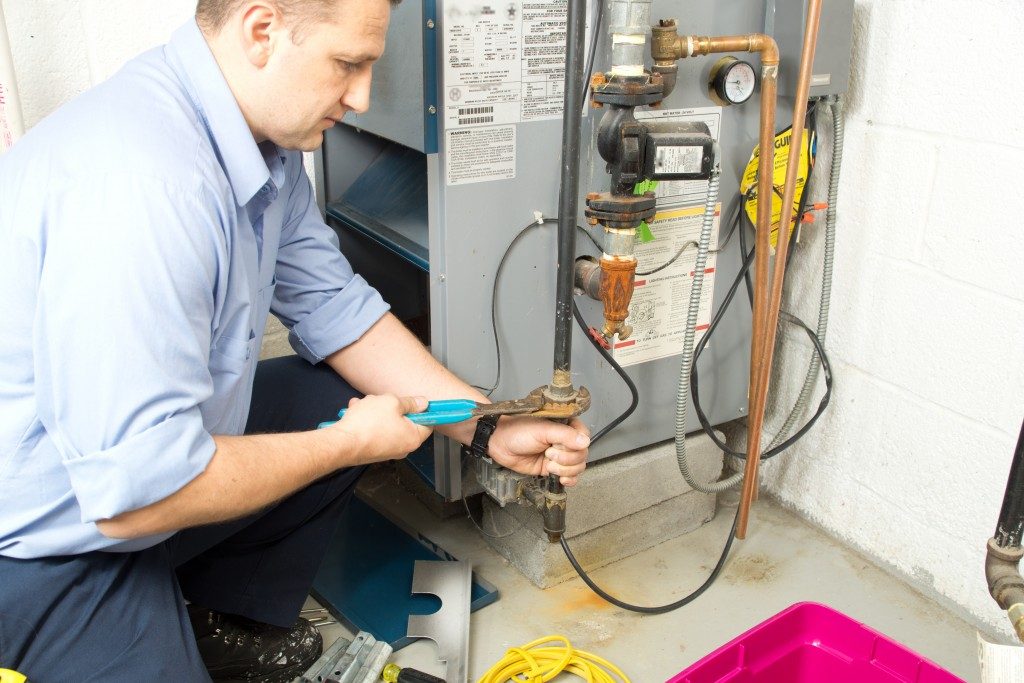In areas with cold climates, once cannot live without a furnace, an essential device that provides sufficient heat indoors. With proper maintenance, a furnace typically lasts long, but over time, signs of wear and tear may begin to show up. It can be the odd noises you hear from it or the rust on its surface.
When you notice any of those, your furnace could be at risk of damage and may need replacement. You should hire quality furnace repair services in Riverton the moment your device shows signs of problems. That said, let's breakdown all likely signs of issues that may lead to damage.
Noises
A noisy furnace shouldn't be ignored, as certain sounds could be a sign of significant damage. When you hear a noise that your furnace never used to make before, you should turn it off and inspect it immediately, and contact an expert if the problem is serious.
Below is a list of furnace noises and what they possibly mean:
- Scraping – Loose or broken parts are the possible causes of this noise. When you hear something like metal hitting another metal consistently, then that's the scraping sound. The blower wheels might have gotten loose, hitting the blower housing which causes such a sound. The motor mount could also be broken, causing the blower wheel to come off and scrape against the housing. Loose and broken parts may also make louder noises like squealing and banging.
- Thumping – This sound could also indicate a problem with the blower wheel. In worse cases, it could be the motor itself that has gone loose or out of balance.
- Humming – A humming sound doesn't always mean a broken furnace, but rather just a loud transformer. Otherwise, it could be a bad interior fan or capacitor that needs to be inspected.
- Squealing – Like scraping and thumping, a loose part could also be the problem when your furnace squeals. Lack of lubrication on some parts may also cause this noise.
- Banging – A clogged filter, an undersized duct, or closed vents can make your furnace emit this noise. Check for those parts and call an expert to have the problem handled.
- Rumbling – Constant rumbling is a possible sign of damage in the burner, so turn your furnace off at once when you hear this noise, and avail repair services immediately.
Rust and Corrosion
A heavily rusted furnace is especially harmful to the heat exchanger because the rust could weaken it and make it develop cracks. Safe ventilation could also be at risk with a rusting furnace, because hazardous gases such as carbon monoxide, sulfur dioxide, and nitrous dioxide may enter your home.
Rust and corrosion is something that a furnace may never avoid at the course of its life. Exposure to water vapor corrodes the metal surface, causing rust. Rusted surfaces tend to attract more moisture and spread it, badly affecting the performance of your furnace.
This sign of damage isn't easy to notice because it starts on the inside, so periodically check the interiors of your heating system, or see the bottom of the housing if there's any rust forming. When a rusting furnace is neglected, your only choice may be a replacement.
Maintenance Tips

The most frequent but highly essential advice given to HVAC owners is to change the air filters regularly. A chain of problems has high chances of occurring with a dirty air filter. Also, schedule annual professional servicing to have other issues addressed.
Clogs and electrical problems may be existing in your furnace, so it's best to have an expert inspect for those. If your unit is old, problems associated with wearing and tearing could be the one plaguing it, so leave the repair to the experts.
Always pay attention to the sounds your furnace is making, as they're usually the first indicators of a faulty motor and other parts. Also, invest in waterproofing solutions as well as home humidification solutions to prevent rusting and provide your home with ideal levels of humidity.
HVAC systems can be costly, so proper maintenance should be observed to prolong its life and for you to get your money's worth.

